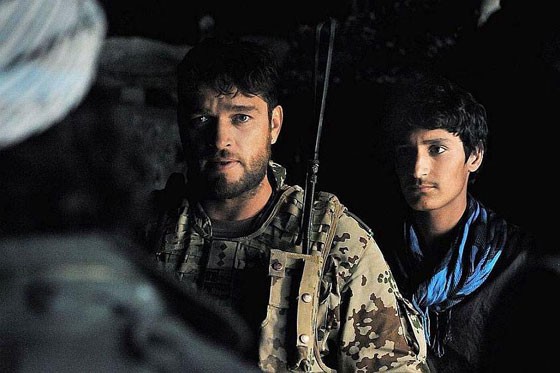I didn’t get to attend the beginning of the Berlin International Film Festival because the Athena Film Festival overlapped with the first weekend of the Berlinale. But I hopped on a plane the day after Athena ended (I know, I’m crazy) and landed here in Berlin to participate in an event with the International Women’s Film Festival Network on Thursday and, of course, to catch some of the movies that will premiere here.
After being at the intimate Athena Film Festival, where all the screenings took place within a one-block radius, the Berlinale was overwhelming in size. But this is my second year, and experience really helps you get into the groove. My flight landed at 7:30 AM, and because I couldn’t check in at my hotel until that afternoon, I figured I would get acclimated and pick up my credentials. After I finished at the press office, I decided to follow the throng of people into the Berlinale Palast (a gorgeous theater) for a press screening. To my surprise and delight, it turned out to be Feo Aladag’s In Between Worlds, a film competing for the Golden Bear.
The thing about big festivals with a competition component like the Berlinale is that people seek out those films. That’s why there was a throng of folks headed to see Aladag’s film at 9 AM. They receive a red-carpet premiere and a big press conference. That’s why it matters so much for women-directed movies to be seen in competition: just by the fact that they are there, they matter.
Aladag takes a huge step forward with In Between Worlds, her second feature. I was very much a fan of her first film When We Leave, which dealt with “honor killings,” but the scope and structure of this film is much larger and more complex. (Here’s an interview I did with Aladag back in 2011.) In this work, she ponders issues of masculinity, war, and Germany’s place in a changing world.
In Between Worlds takes place in contemporary Afghanistan with a resurgent Taliban. A German military unit is assigned to help a local Afghan leader keep them at bay. Jesper (Ronald Zehrfeld) is a conflicted soldier before his assignment even begins. His brother was recently killed in Afghanistan, but he agrees to take on another assignment. While the film is ostensibly about war, it’s much more about moral conflict. It’s about how we are all human, even though we are all different. It’s about how personal moral decisions have tremendous consequences.
It’s interesting to see a war movie from a female perspective. There are explosions, but it’s really not about the explosions. Rather, it’s about what connects people through war and how soldiers who are told to follow orders at all costs sometimes just can’t do it.







